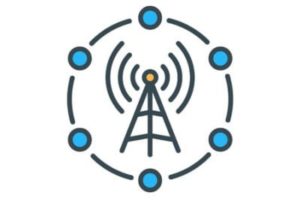
British Prime Minister Boris Johnson announced that Chinese tech giant Huawei will be granted a limited role in Britain’s 5G cellular network, despite the fact that the United States has been calling on its allies to exclude the company.
Huawei, who Britain referred to as a “high-risk vendor”, will be allowed into non-sensitive parts of the 5G network and its involvement will be capped at 35%. Areas restricted to Huawei will include the core where data is processed, and all critical networks and locations such as military bases and nuclear sites.
5G networks are a highly-anticipated technological leap forward that will bring much faster data speeds than what are currently available, and are expected to be a driver of economic growth going forward as well as a catalyst in the creation of new industries altogether.
China has so far led the way in the launch of the new network, with Huawei at the centre of its accomplishments to date, while the FCC continues to try and get the network implemented across the U.S.
Some analysts have expressed concern that 5G dominance by China will signal the country’s technological supremacy over the U.S., with antagonism between the two countries echoing Cold War era relations with the Soviet Union.
Despite the restrictions and limitations placed on Huawei, members of the Trump administration voiced their displeasure with the deal Britain struck.
“There is no safe option for untrusted vendors to control any part of a 5G network,” an unnamed administration official told Reuters. “We look forward to working with the UK on a way forward that results in the exclusion of untrusted vendor components from 5G networks,” they added.
“I fear London has freed itself from Brussels only to cede sovereignty to Beijing,” said Republic Arkansas senator Tom Cotton, going so far as to say there should be a review of intelligence sharing with Britain.
Republican senator Lindsey Graham also expressed concern, and threatened that Britain’s decision could “greatly complicate” negotiations over a new trade agreement after Britain’s January 31 exit from the European Union.
Speaking on the condition of anonymity, a British official said that excluding Huawei would have cost consumers more in the long run due to the delays it would have caused in the 5G rollout.
Source: Reuters

Follow Us